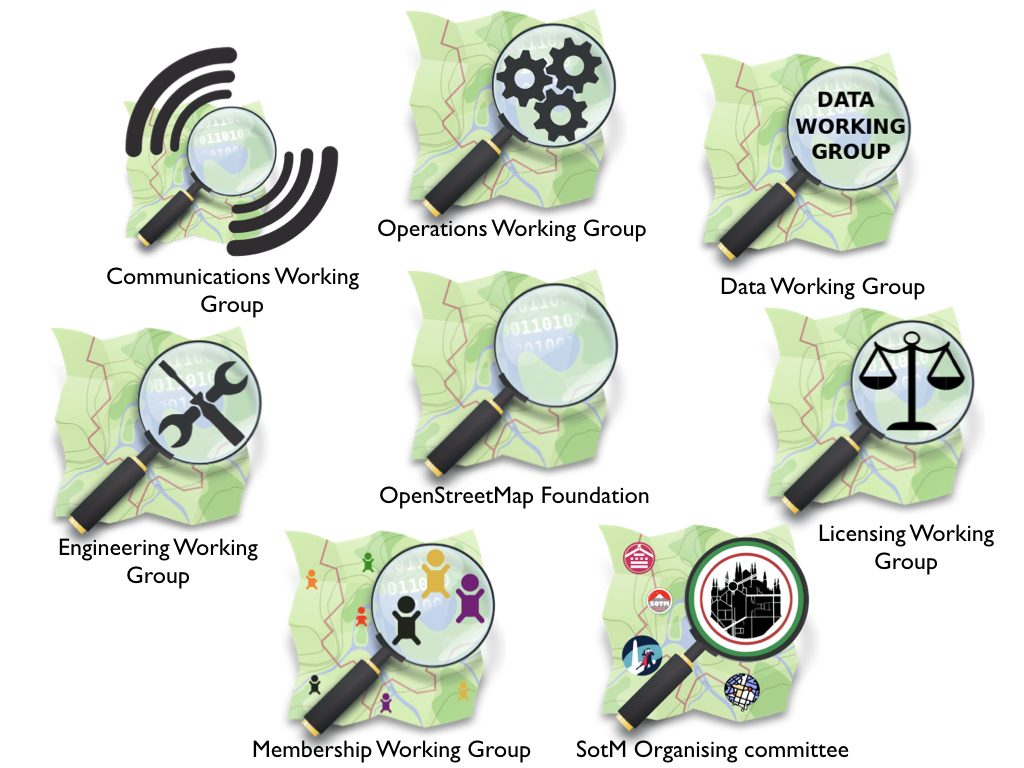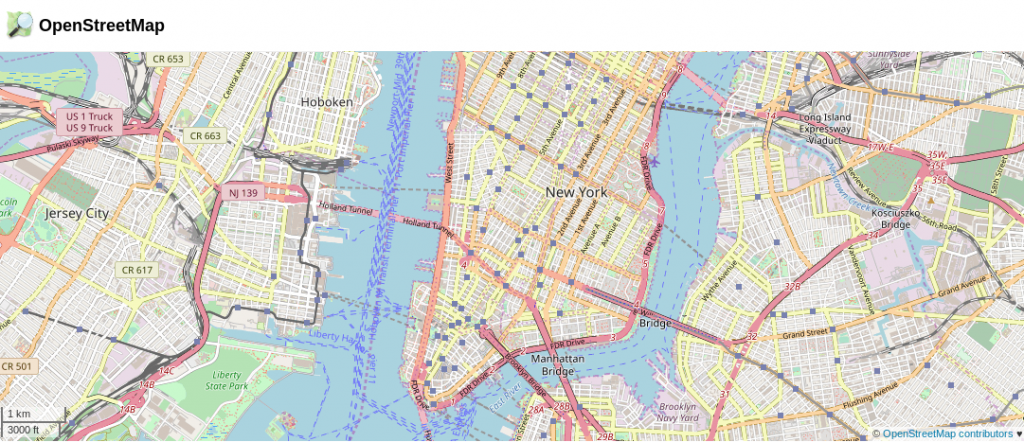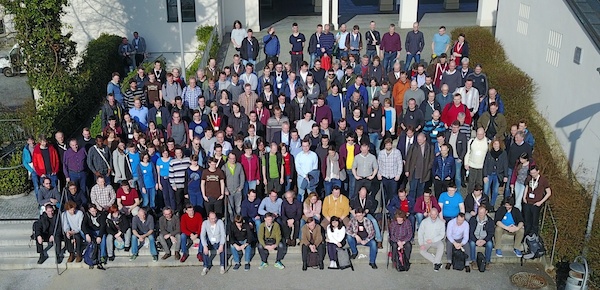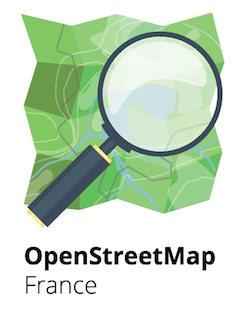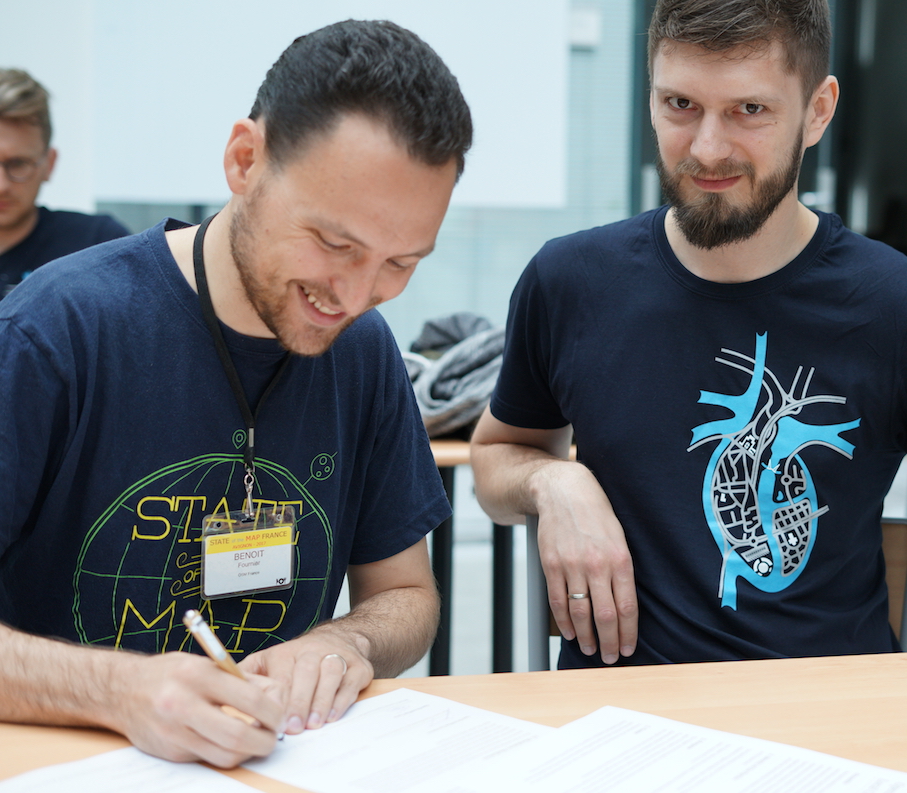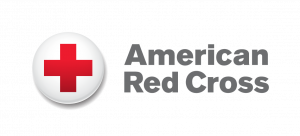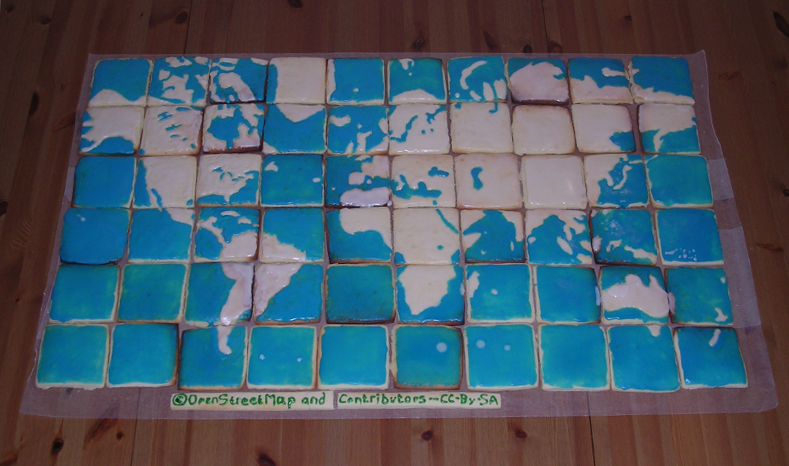Like 2016 and 2017, the OSMF board had a face-to-face meeting again this year. This time, we met in Karlsruhe, Germany, at the office of Geofabrik. Meeting at Frederik’s and Christine’s place was a great choice and Frederik was a great host. In addition to having plenty of room to talk and work we even got home-made cheese cake from Christine (thank you!).
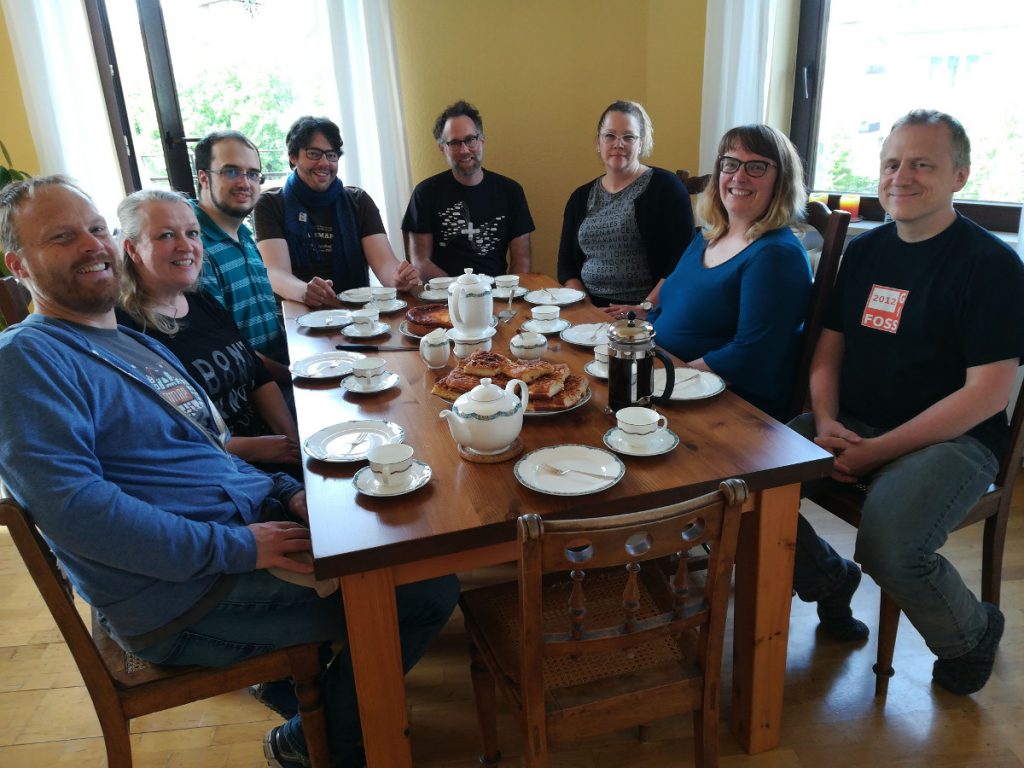
OSMF Board eating cheese cake after an invitation by Christine. © CC-BY-SA Dorothea
I had a short trip by car and arrived on Friday, 27th of April in the late afternoon and the official schedule started Saturday morning. Most of my colleagues, who had to take a longer trip by plane, arrived early on Friday or even Thursday and thus had the chance to meet at Frederik’s place for some early preparations and working on some OSMF stuff.
I don’t consider this post a detailed summary of what happened and what was talked about. It’s more about my thoughts about the meeting and about the most prominent topics we talked about. There will be more detailed minutes at a later stage.
Preparation
Like in previous years, we filled in a small questionnaire about our expectations and plans for this face-to-face meeting and once again it was Mikel who did a great job collecting the input and assembling a schedule for us. The schedule was less tight than in past years and we deliberately left some space for some last-minute topics. We also had some topics where it wasn’t clear if we could make it in the time set, so it was good to have some space for that.
Social interactions
One of the more generic recurring goals was to understand each other’s points of view, work and communication styles. I kind of find it funny how much such a meeting helps in that regard as it’s still a huge difference between reading, hearing and also seeing someone to get to know them better. And while most of us have met before, I think I still gained from it. Additionally it was Heather’s first meetup with the rest of us, so I took the chance to get to know her better.
On the mailing list we were asked about the value of the meeting, if it’s worth it. And as every year I feel the pain of giving a concrete answer to that. It’s hard to measure it as you don’t have any revenue to compare against. Anyway, I think the social aspect of the meeting is an important one. “Did they want to offend me?”, “Are they serious about that or was that a joke?”,… knowing someone in-person makes it easier to understand and classify a response. This makes overall communication easier and more productive I think. And given our organizational budget compared to the money spent, I guess my suggestion for future boards would be to just have a face-to-face meeting by default, without trying to ponder about its value.
Conflict of Interest
The topic about conflict of interest (COI) was a very difficult one and I felt the urgent need to talk about it early on. I thought that some other topics might pose a COI for some of us, so we should talk about COI first.
The problem that I have is that it’s very easy to construct a scenario where something might be a potential conflict of interest and as I wrote in a similar discussion on osmf-talk mailing list, you could easily argue that Mikel, as an employee of Mapbox, kind of always has a potential COI. Rightly Mikel told me, that it’s not hard for him to construct a case making me have a potential COI as well, for whatever topic we talk about.
I seemed to be very passionate about that topic as I got asked several times to explain myself and that the others perceived me as having a strong opinion on it. I actually did not, I had a lot of questions and I felt the need to answer them. We discussed the topic for quite some time, but only very few questions could be answered. Anyway, we agreed that we should have a guideline at some point. Until then, I’d like to invite you to take part in that discussion and share your thoughts on our mailing list. We are supposed to support the community and value their input.
The second conclusion was, that we could use some professional help. That’s why we wrote a mail to “our” lawyer to clarify some of the questions we had. E.g. the legal text about COI speaks about a COI if a person is director in two companies, which basically only applies to Frederik and Kate at best. But what about if you’re an employee in one company and director in the other, like e.g. Mikel or Martijn. The law reads as if that can’t be a COI. So independent of our guideline, such questions should be answered first and I hope we’ll be able to share them with the community soon.
Micro Grants
We had talked about micro grants before and somehow didn’t follow up or finish it. As I said, some of us had been in Karlsruhe on Thursday or Friday, so they took the chance to start working on it at that point in time and we continued to work on it on Saturday and Sunday together. I guess in the end we have a pretty decent plan.
I can’t estimate if micro grants will be successful or not, but I think that it’s a good idea to have something like that and to encourage people to take place in it. In the German chapter, the FOSSGIS e.V., we have something similar and in my opinion it has been proven to be quite valuable, so I hope the OSMF micro grants prove to be a similar success.
Anyway, I guess some more details will pop up on the mailing list soon and the program is scheduled to start at this year’s State of the Map.
Working Groups and Volunteers
This is the second topic we resumed from last year and I’m getting a bit emotional about that one. I love the OpenStreetMap project and its community, the amount of volunteering time spent on the project and the output, our great database and map.
Still I find it very sad that only very few people spend their time on helping to run the project. Almost all working groups suffer from a lack of volunteers, only very few people help developing code for the core services, almost no one participates in organizational discussions about the project and so on. So if you’re reading this post you most likely are not in a working group. Why? It’s so easy to join and help!
Anyway, we talked about ideas how to solve that and how to get volunteers to help. It was a tough topic and I think I was not really enthusiastic about any of the ideas. And in the end I felt the need to abstain from further discussion. I can’t say if there’s a conclusion to that, but one thing we felt is the need to better identify the needs of working groups. I guess it’s not obvious for everyone how much we lack volunteers to keep the project running.
Diversity and Communications
The diversity and communications topic was something I was afraid of as I considered everyone having a very strong opinion on that. At least I have. I thought we’d get into a fight over that, but all of us left without a black eye.
As I said in the begining, these are my thoughts and my opinions, so I don’t want to get into too much detail. But if I read e.g. this code of conduct, my blood pressure rises. I consider it very unfair, I can’t stand rules that know who’s guilty in advance and that consider insults acceptable if they are coming from the correct set of people. I also
dislike how the issue is often approached with a clearly defined “desired outcome”, instead of openly discussing real problems and their potential solutions.
Still, the discussion was not so bad after all. We split up into two smaller groups and I discussed with Frederik, Mikel and Kate and it was interesting to hear their opinions on it. I especially appreciate talking with Kate about it. She’s kind of passionate about the topic and she is able to provide very good examples and insights and she’s amazingly patient with people who ask silly questions :-). It helped me very much understanding other points of view. It didn’t change my mind though but I think the discussion gains much from people like her.
GDPR
The GDPR is a very important topic as it starts taking effect soon. We talked quite much about it and Heather took the lead on it. She was very well prepared and put considerable time into it. I think she’s also concerned with it in her professional life, so she knows what she’s talking about. I had some reservations that from the outside it would look like we’d overrule the LWG, but we ended up mostly devising strategies for the bits that fell outside of LWG‘s responsibility, and otherwise agreeing with their recommendations.
You can read more on the topic at several places, but I guess the most comprehensive information or summary can be found in Heather’s blog post here
Summary
I will abstain from a judgement on whether the meeting is worth the money or not. As Frederik put it some time back: We should just make it default to have a face-to-face meeting and that’s my suggestion for the boards to follow as well.
I think we did get some things done and meeting in person makes it easier, quicker and more productive. As I said above, I hope we’ll gain as a project from the micro grants. I also hope that we started a process to get a guideline for the conflict of interest and I’m eager to read the lawyer’s reply. I deliberately didn’t include details, as you’ll be able to read them in the minutes anyway. But I somehow hope that my post furthers the interest in our project and organizational topics. Please participate in the discussions and share your thoughts.
